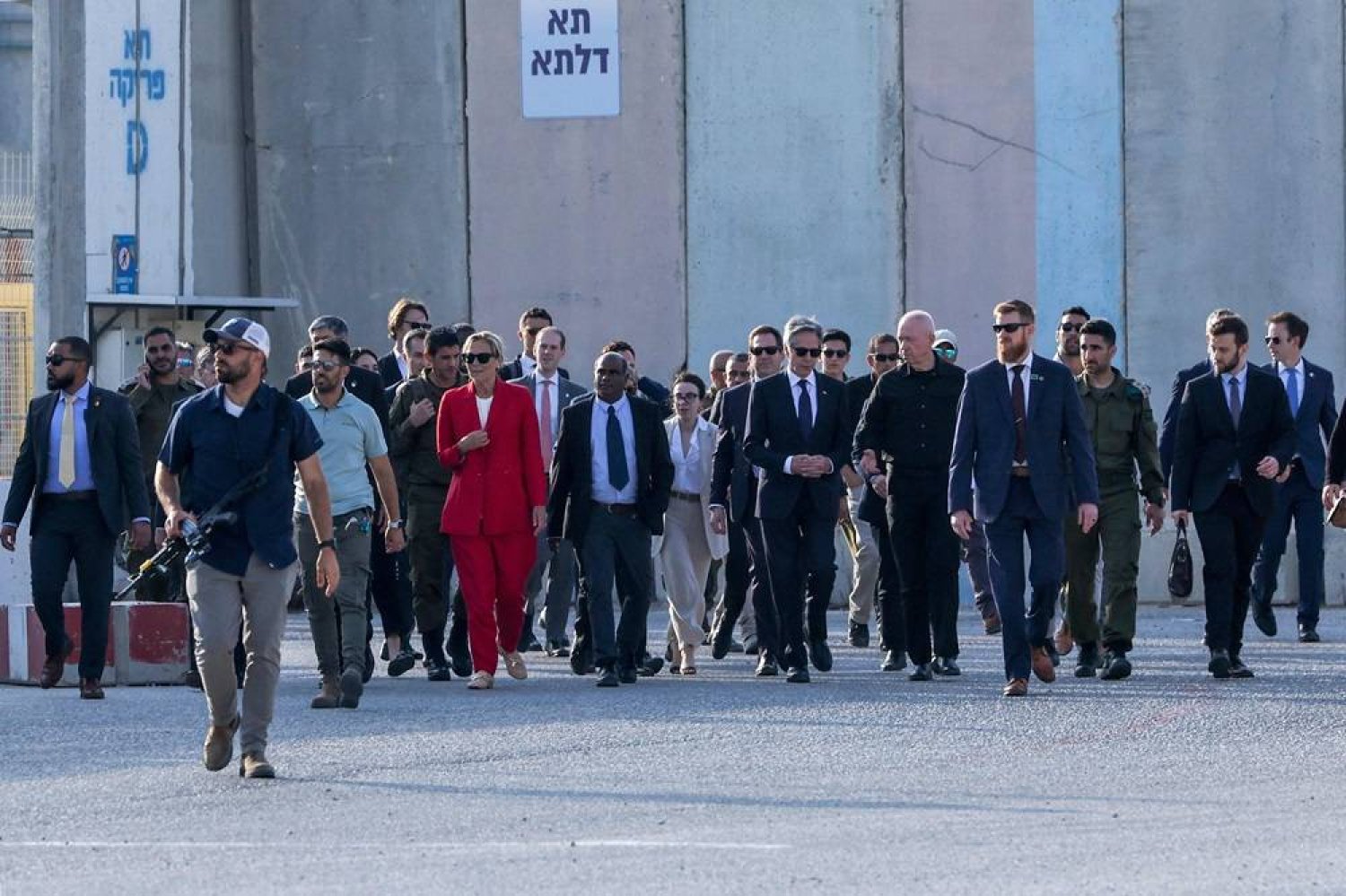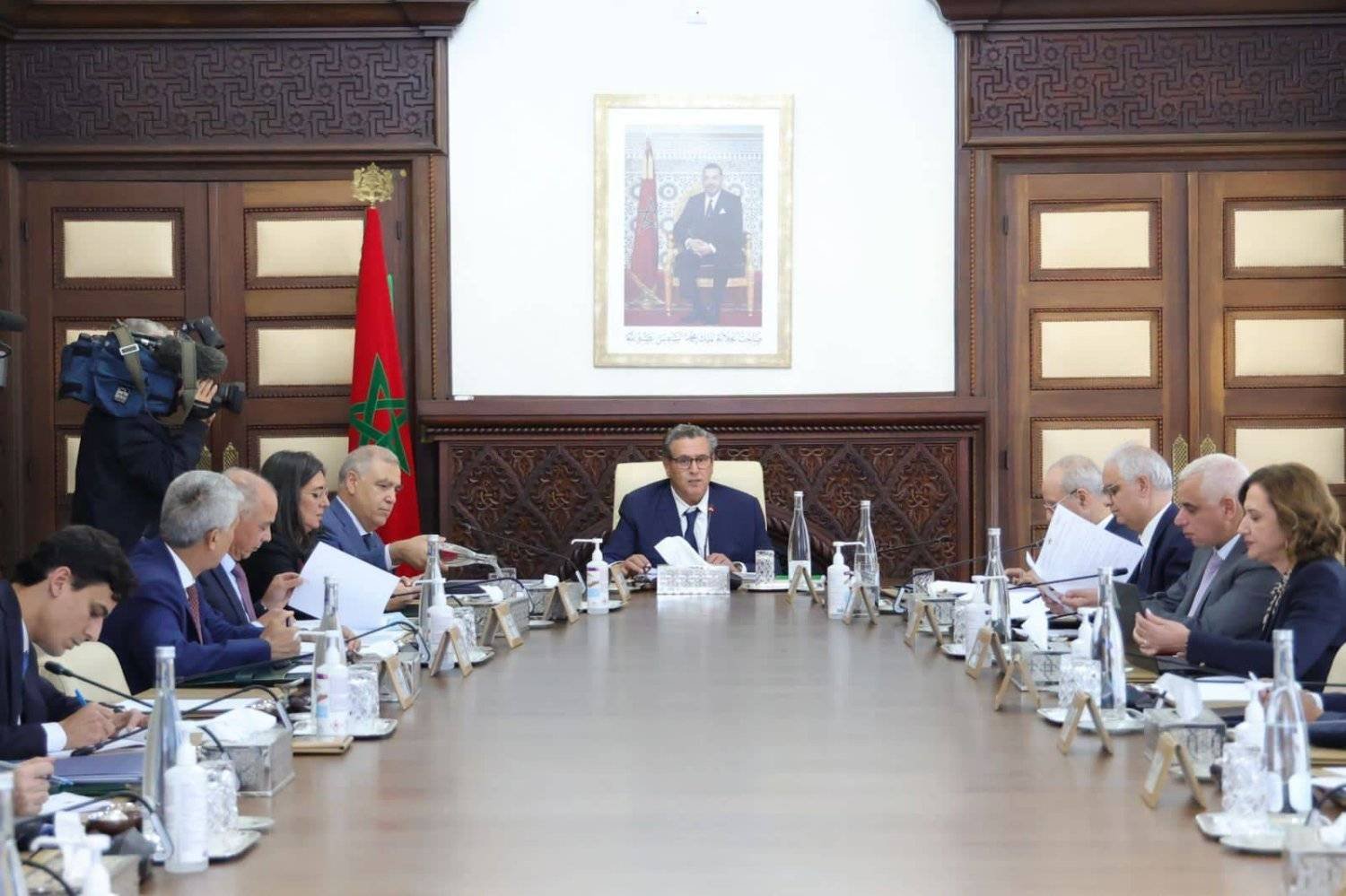The leader of the Christian Lebanese Forces blasted the Shiite group Hezbollah for opening a front with Israel to back up its ally Hamas, saying it has harmed Lebanon without making a dent in Israel’s crushing offensive in the Gaza Strip.
In an interview with The Associated Press on Tuesday night, Samir Geagea said Hezbollah should withdraw from areas along the border with Israel and the Lebanese army should deploy in all points where fighters of the Iran-backed group have taken positions.
His comments came as Western diplomats try to broker a de-escalation in the border conflict amid fears of a wider war.
Hezbollah began launching rockets toward Israeli military posts on Oct. 8, the day after Hamas-led gunmen stormed into southern Israel in a surprise attack that sparked the crushing war in Gaza.
The near-daily violence has mostly been confined to the area along the border, and international mediators have been scrambling to prevent an all-out war. The fighting has killed 12 soldiers and 10 civilians in Israel. More than 350 people have been killed in Lebanon including 273 Hezbollah fighters and more than 50 civilians.
“No one has the right to control the fate of a country and people on its own,” Geagea said in his heavily guarded headquarters in the mountain village of Maarab. “Hezbollah is not the government in Lebanon. There is a government in Lebanon in which Hezbollah is represented.” In addition to its military arm, Hezbollah is a political party.
Geagea, whose party has the largest bloc in Lebanon’s 128-member parliament, has angled to position himself as the leader of the opposition against Hezbollah.
Hezbollah officials have said that by opening the front along Israel’s northern border, the group has reduced the pressure on Gaza by keeping several Israeli army divisions on alert in the north rather than taking part in the monthslong offensive in the enclave.
“All the damage that could have happened in Gaza ... happened. What was the benefit of military operations that were launched from south Lebanon? Nothing,” Geagea said, pointing the death toll and massive destruction in Lebanon's border villages.
Israel’s war against Hamas in Gaza has killed more than 34,000 Palestinians, caused wide destruction and displaced hundreds of thousands to the city of Rafah along Egypt’s border. Israel’s Prime Minister Benjamin Netanyahu vowed Tuesday to launch an offensive into the southern Gaza city of Rafah despite international calls for restraint.
Geagea said Hezbollah aims through the ongoing fighting to benefit its main backer, Iran, by giving it a presence along Israel’s border and called for the group to withdraw from border areas and Lebanese army deploy in accordance with UN Security Council resolution 1701 that ended the 34-day Israel-Hezbollah war in 2006.
Geagea also discussed the campaign by his party to repatriate Syrian refugees who fled war into Lebanon.
Those calls intensified after a Syrian gang was blamed for last month's killing of Lebanese Forces official Pascal Sleiman, allegedly in a carjacking gone wrong, although many initially suspected political motives.
Lebanon, with a total population of around 6 million, hosts what the UN refugee agency says are nearly 785,000 UN-registered Syrian refugees, of which 90% rely on aid to survive. Lebanese officials estimate there may be 1.5 million or 2 million, of whom only around 300,000 have legal residency.
Human rights groups say that Syria is not safe for mass returns and that many Syrians who have gone back — voluntarily or not — have been detained and tortured.
Geagea, whose party is adamantly opposed to the government of President Bashar al-Assad in Syria, insisted that only a small percentage of Syrians in Lebanon are true political refugees and that those who are could go to opposition-controlled areas of Syria.
He suggested his country should follow in the steps of Western countries like Britain, which passed controversial legislation last week to deport some asylum seekers to Rwanda.
“In Lebanon we should tell them, guys, go back to your country. Syria exists,” said Geagea.
















